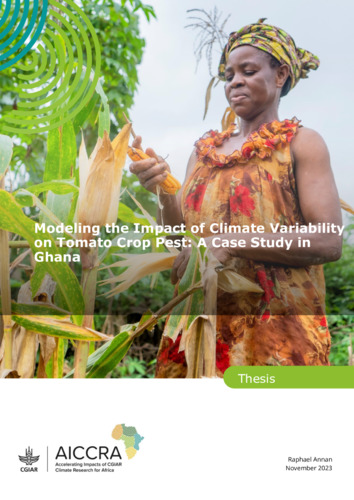Modeling the Impact of Climate Variability on Tomato Crop Pest: A Case Study in Ghana
Abstract
Despite the functioning of tomato production in the financial and nutritional healthy living of most farm families in Ghana, the effects of climate variations on tomato production via the outbreak of tomato pest is generally understudied. Thus, this study aims to explain the effects of climate variation on tomato crops via the outbreak of tomato pests using structural equation modeling (SEM). The profile of the study regions involved the Ashanti Region (AR), Bono Region (BR), and Upper East Region (UER). Four SEM evaluation indices (i.e., GFI, CFI, RMSEA, and TLI) were used to assess the overall performance of the identified models. The results showed that the GFI, CFI, and TLI had a value of 1, while the RMSEA had a value of 0, across all regions. It was also found that the mediator variables were not fully mediating between the climate variables and their impact on tomato yield across the three regions. However, the study identified a direct modeling path between the climate variables and the outbreak of tomato pests due to climate variability, as well as a significant modeling path between the outbreak of tomato pests due to climate variability and its impact on tomato yield.

